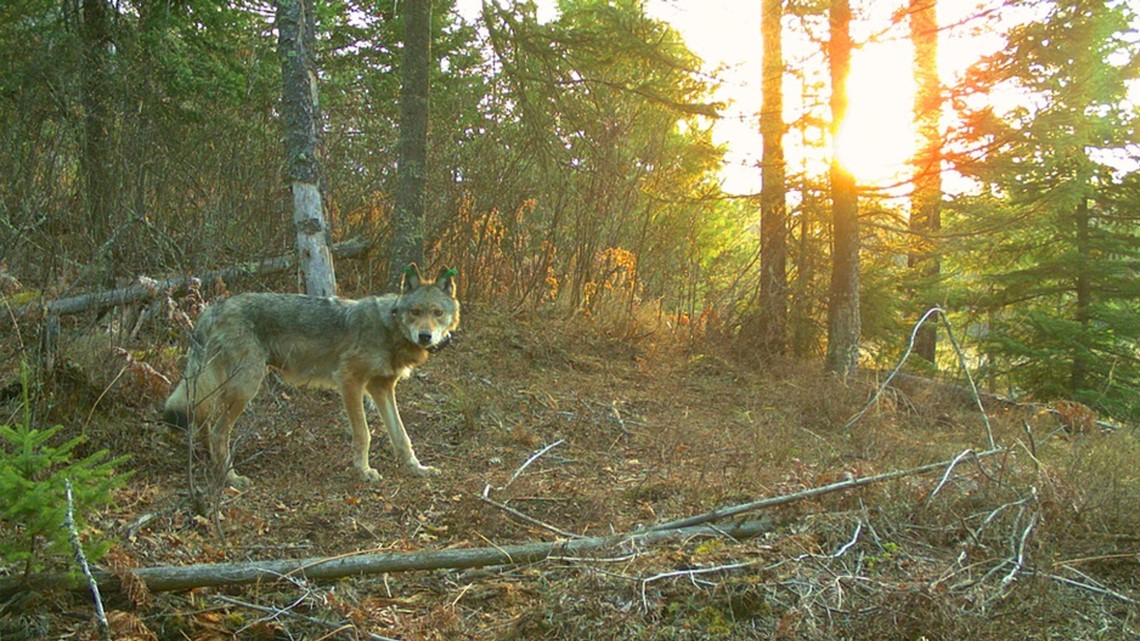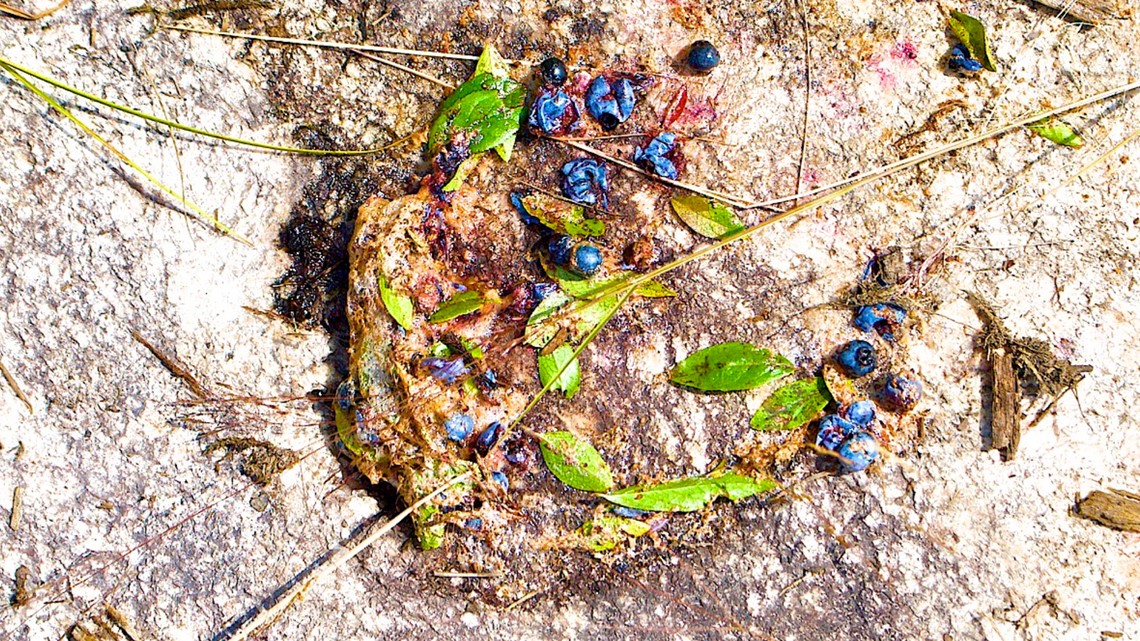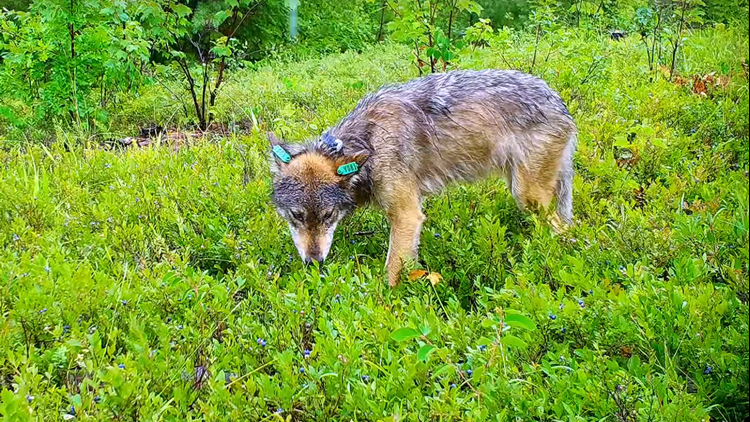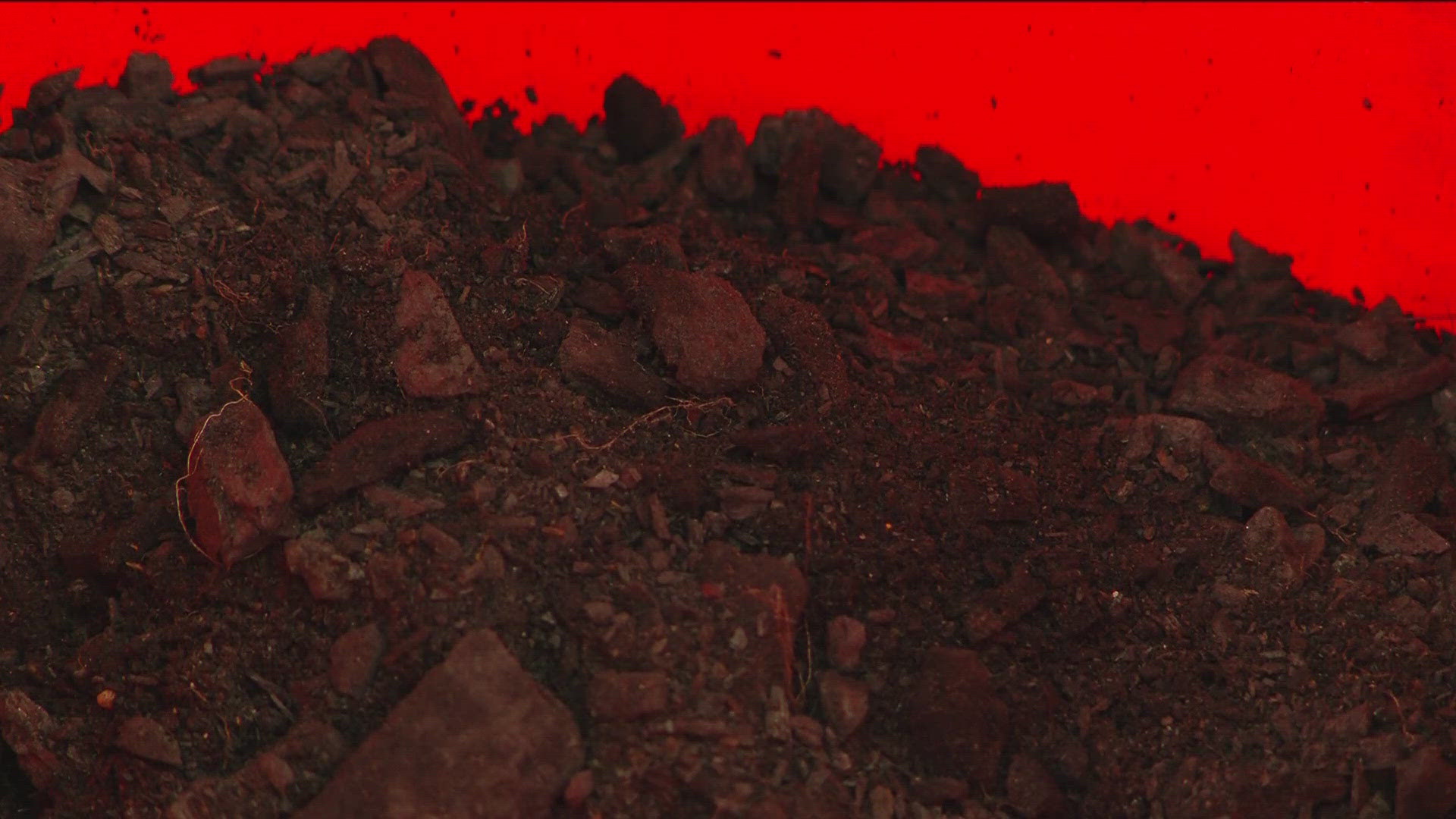VOYAGEURS NATIONAL PARK, Minn. — The researchers at Voyageurs Wolf Project in northern Minnesota are berry happy right now.
That's because they finally have video footage of a wildlife phenomenon they've been chasing for two years.
"It’s been super exciting," says Tom Gable, the project leader of the Voyageurs Wolf Project.
They figured out a while ago that wolves in northern Minnesota were eating berries.
"We knew they were doing it but we had never been able to see it," Gable says. "Finally this past summer we made a real push to try to get this behavior on film."
They put out 25 remote cameras and successfully caught the blueberry-eating wolves in action.
Gable believes this is likely the only existing footage of wild wolves eating blueberries - although there are a few videos of wolves eating other kinds of berries and fruits.
Coinciding with the release of the video, the Voyageurs Wolf Project also just published their observation of a mother wolf regurgitating blueberries to her five wolf pups. This is the first documented case of wolves feeding their pups with berries or fruits of any kind.
"It brought up some interesting questions about how important berries are or aren’t as a food source for wolves," Gable says.


That's what researchers don't yet know: What role the blueberries play in the ecology of the wolves in the area. And this new research lends a valuable insight.
"The fact that they are going out, filling up their bellies, and then coming back and regurgitating it to their pups suggests that it may be a more important food source than we had originally suspected," Gable says.


The time of the year that wolves are eating blueberries, Gable says, corresponds to a time when other prey is relatively difficult to catch. Deer fawns are vulnerable in June, but by July they're bigger and stronger and can often outrun wolves. Beavers have lots of aquatic vegetation to eat in July and August, and they spend less time on land.
"It’s possible that these blueberries are sort of starvation food where wolves can’t catch their other prey," Gable says.
Their hypothesis is that the wolves may sit in blueberry patches and eat the berries, not expending as much energy as they would chasing prey, and then use those to feed their young.
The next discovery they hope to make is whether wolves are actually killing fewer fawns and beavers because there are so many berries available, or if they are still just eating berries in addition to that prey.
"That’s a pretty important question that we hope to answer in the future," Gable says.
The Voyageur Wolf Project is a collaboration between Voyageurs National Park and the University of Minnesota, with support from the Minnesota Environment and Natural Resources Trust Fund.



